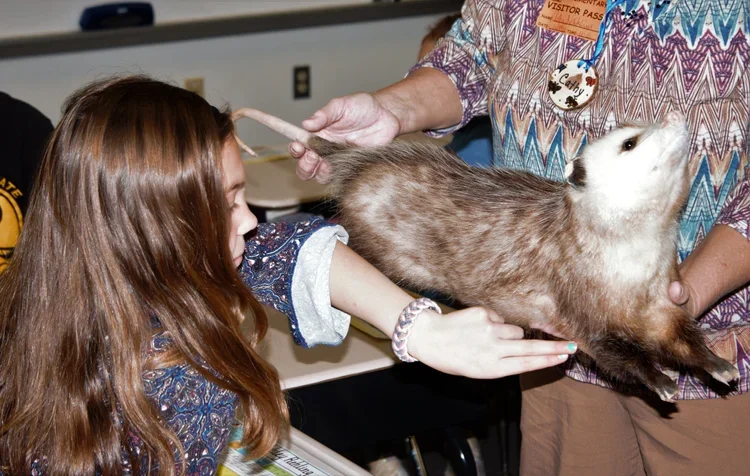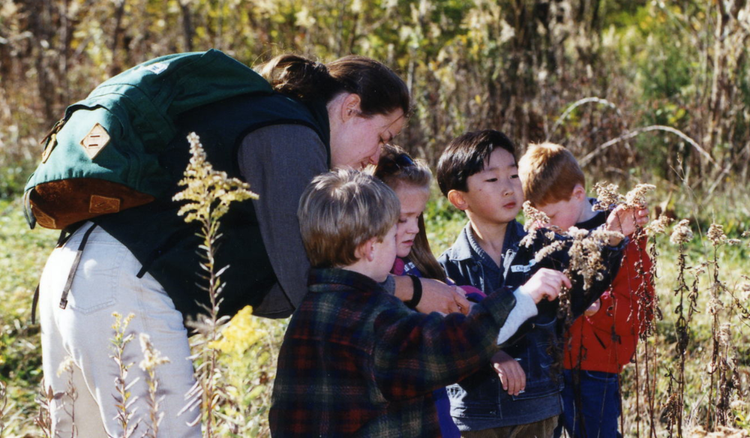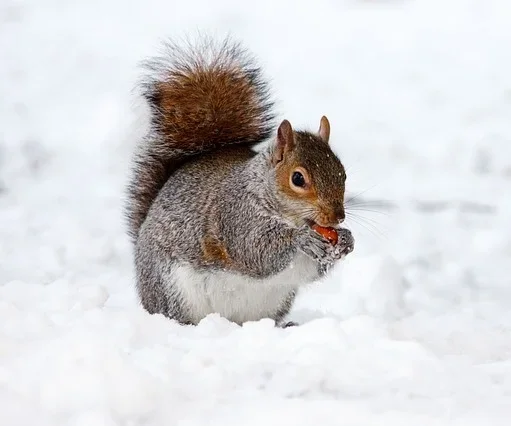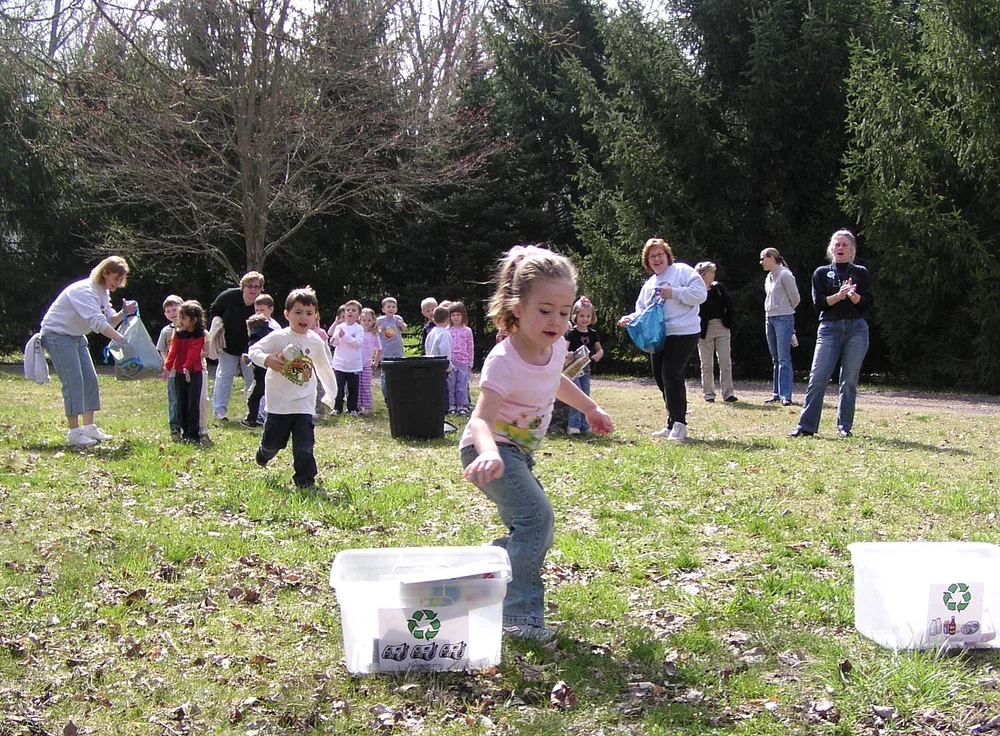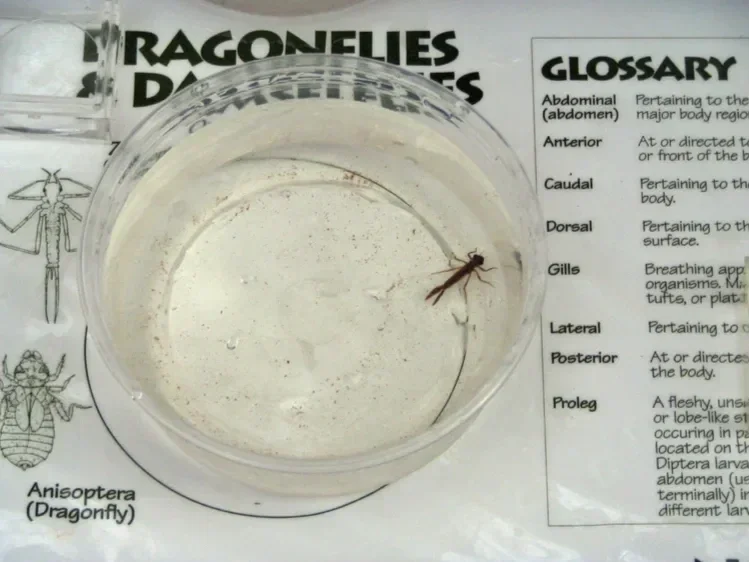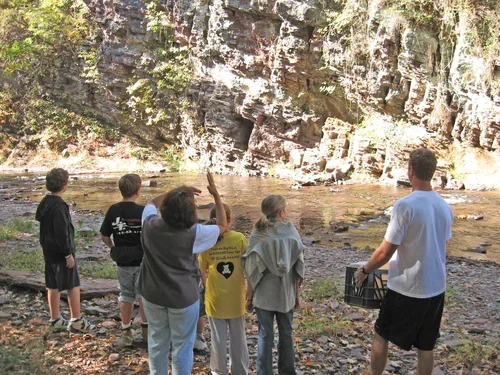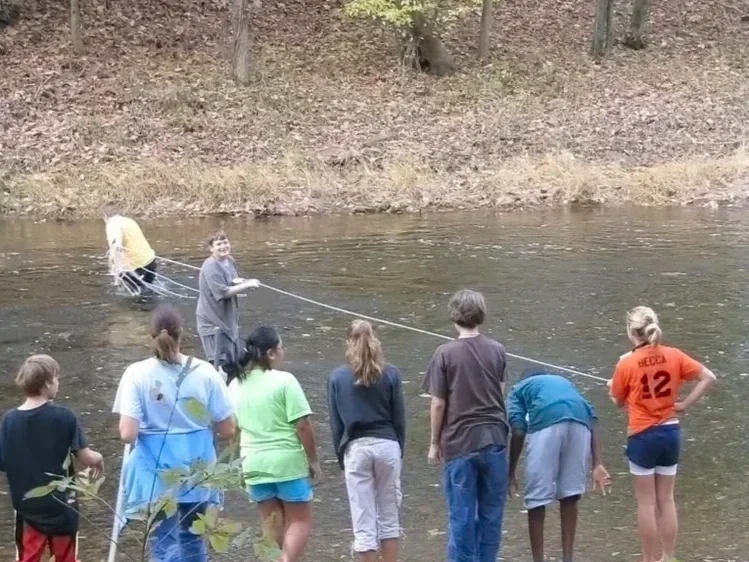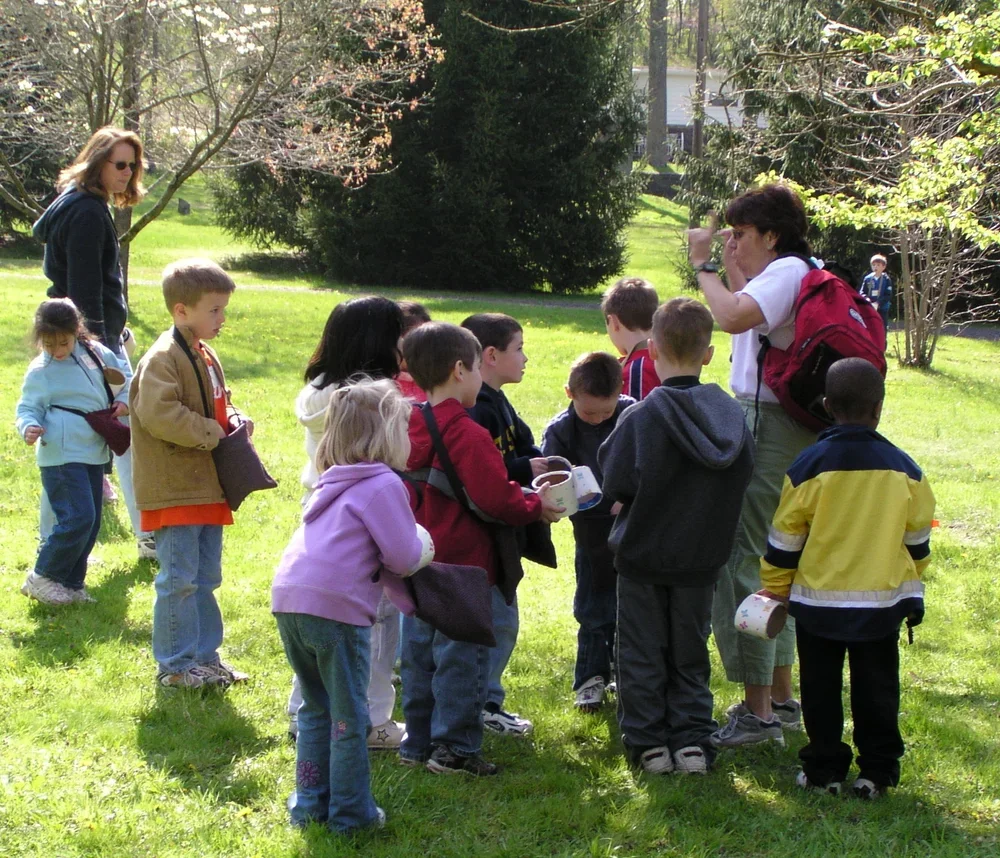
Preschool & Kindergarten Programs
Animal Adventure Hours
Animal Adventure Hours are hour-long programs where students will learn about an animal or group of animals through story books, games & activities, and a craft! Choose from over a dozen different themes!
Click below to see the full list and descriptions of our Animal Adventure Hours!
Seasonal Favorites!
Fall Mysteries (Preschool & Kindergarten)
Students become investigators as they search for clues along the trail that will uncover the secrets of “Danny Deer’s Fall Mysteries.” What are those squirrels doing? Why do some birds fly south? What treasures do wildflowers leave behind? Excitement abounds as your students marvel at all that is fall!
Winter Wonders (Pre-School)
An active story time adventure, weaves carefully chosen children's literature with a variety of movement activities, games, and songs, concluding with a simple craft for everyone.
Winter Secrets (Kindergarten)
Ever peered out your window on a cold winter day and wondered, how do the animals survive during this season? Through a story about Mother Nature and her animal friends, as well as games and songs, your students will uncover the secrets of how animals survive in winter.
Spring Surprises (Pre-school)
Young learners will delight in the opportunity to use their senses to experience the wonders of spring! We will marvel at Spring's pastel flowers, fragrant plants, seasonal sounds and more! The Conservancy's paths will offer bountiful delights to our small groups of 10 -12 learners per leader. Everyone must bring their special tools (eyes, ears, nose, and fingers) to fully enjoy this season at its best!
Spring-Sensations (Kindergarten)
Our lesson begins with a letter from a dear ‘friend.’ She is old and forgetful and needs our help to learn all we can about this wondrous season. Using our ‘special tools’ of smell, sight, touch, and hearing, we head out to gather information and learn about that is Spring! Through a variety of activities including a feast of feelings, wildlife concert , and nature art gallery we share our findings and revel in our adventures!
What the teachers are saying:
”I love bringing my students to your site. The staff is excellent - you know just how to reach pre-school children!”
-Teacher, Twin Acres Country Day School
It’s a large planet with lots of wonderful plants and animals all over it! Every living thing needs clean water, fresh air, food and shelter to survive. How can young learners help take care of such a large place?
We’ve designed engaging activities and created an action component to help your students make a difference! This unique and empowering hour long program features a very special craft at the end!
What the teachers are saying:
”I was very impressed by the program and the literature chosen to relay the Earth Day message. The presentation was great learning fun for all!”
- Asst. Principal, Chesterbrook Elementary
Earth Day Special!
Pricing & Booking
* $7.50 per student at the Conservancy ($75 minimum fee per class)
* $8.50 per student at your site ($80 minimum fee per class) plus a $10 per class travel & transportation fee when held at your site
For more information or for reservations contact: PWC Education Department at education@perkiomenwatershed.org
PDE Academic Standards covered in these lessons
3.1.PK.A1 - Recognize the difference between living and non-living things.
3.1.PK.A2 - Identify basic needs of plants (water and light) and animals (food, air, water).
4.1.PK.D - Identify basic needs of living things.
4.1.K.A - Identify the similarities and differences of living and non-living things within the immediate and surrounding environment.
4.1.K.D - Observe and describe what happens to living things when needs are met.
4.1.K.E - Identify how the changes of seasons affect their local environment.
4.1.K.F - • Distinguish between scientific fact and opinion. • Ask questions about objects, organisms and events. • Understand that all scientific investigations involve asking and answering questions and comparing the answer with what is already known. • Plan and conduct a simple investigation and understand that different questions require different kinds of investigations. • Use simple equipment (tools and other technologies) to gather data and understand that this allows scientists to collect more information than relying only on their senses to gather information. • Use data/evidence to construct explanations and understand that scientists develop explanations based on their evidence and compare them with their current scientific knowledge. • Communicate procedures and explanations giving priority to evidence and understanding that scientists make their results public, describe their investigations so they can be reproduced and ask questions about the work of other scientists.
4.3.PK.A - Identify how the environment provides for the needs of people in their daily lives.
4.3.K.B - Recognize the importance of conserving natural resources.4.4.PK.B - Identify people’s basic needs.
4.5.PK.A - Identify what people need to survive.
4.5.PK.C - Identify ways people pollute the environment.
4.5.PK.D - Describe how everyday human activities generate waste.
4.5.PK.F - • Distinguish between scientific fact and opinion. • Ask questions about objects, organisms and events. • Understand that all scientific investigations involve asking and answering questions and comparing the answer with what is already known. • Plan and conduct a simple investigation and understand that different questions require different kinds of investigations. • Use simple equipment (tools and other technologies) to gather data and understand that this allows scientists to collect more information than relying only on their senses to gather information. • Use data/evidence to construct explanations and understand that scientists develop explanations based on their evidence and compare them with their current scientific knowledge. • Communicate procedures and explanations giving priority to evidence and understanding that scientists make their results public, describe their investigations so they can be reproduced and review and ask questions about the work of other scientists.
4.5.K.A - Identify what people use in their everyday life.
4.5.K.C - Identify different types of pollution (land, water or air) and their sources.
4.5.K.D - Identify waste and practice ways to reduce, reuse and recycle.
4.5.K.F - • Distinguish between scientific fact and opinion. • Ask questions about objects, organisms and events. • Understand that all scientific investigations involve asking and answering questions and comparing the answer with what is already known. • Plan and conduct a simple investigation and understand that different questions require different kinds of investigations. • Use simple equipment (tools and other technologies) to gather data and understand that this allows scientists to collect more information than relying only on their senses to gather information. • Use data/evidence to construct explanations and understand that scientists develop explanations based on their evidence and compare them with their current scientific knowledge. • Communicate procedures and explanations giving priority to evidence and understanding that scientists make their results public, describe their investigations so they can be reproduced and review and ask questions about the work of other scientists.

